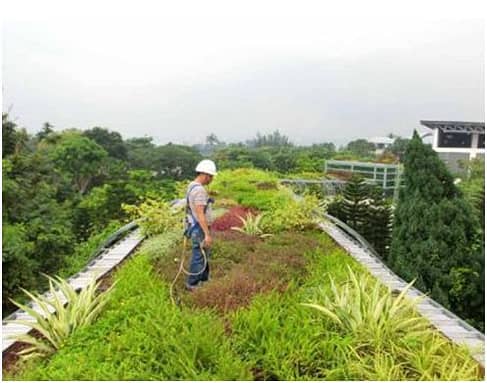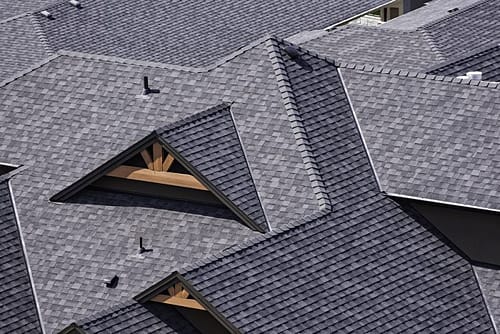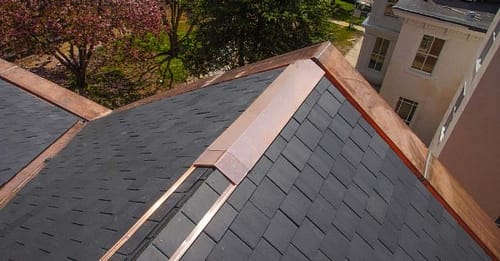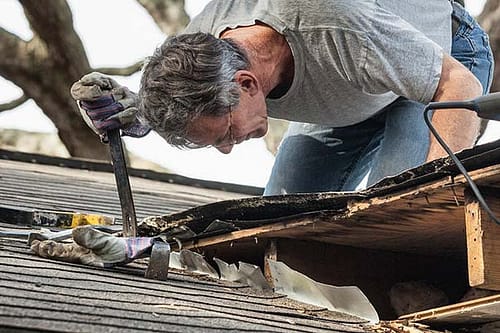A number of roofing materials can be combined with the concept of “soft roof”. This is the so-called flexible tile, roll materials like roofing, bitumen and polymer films are fused and self-adhesive. Flexibility and plasticity allow them to be used for roofs of the most complex architectural forms, including conical or domed. High noise protection provides comfortable silence even with the heaviest rain or hail.
Flexible or bituminous tiles
It consists of one or several layers of fiberglass impregnated with high-tech polymer additives or oxidized bitumen. It does not have much tensile strength but is very elastic. Appearance and service life are improved by coating the surface of the sheet with fine basalt or slate chips. This protects the material from the effects of atmospheric precipitation and sunlight, improves its strength and the preservation of forms, and also improves the appearance. Flexible tiles are distinguished by a variety of manufactured shapes and colors.
On sale, it is easy to find single-layer and multi-layer flexible tiles. The installation process is quite simple and can be performed independently in accordance with the manufacturer’s instructions. But laying is done on a continuous crate made of multilayer moisture-proof plywood, OSB boards or dowel boards, which significantly increases costs.
Flexible tiles have water resistance, but it is undesirable to use it with a roof slope of fewer than 12 degrees due to the possibility of water flowing into joints. In terms of frost resistance, flexible tiles are inferior to materials based on metal or ceramics but have high maintainability.
The most modern roofing material in this group is composite tile.
Composite tile
It is a compromise between flexible and metal tiles, combining the advantages of both. Composite tiles have high noise protection, wind resistance, as well as resistance to temperature extremes and exposure to sunlight. It does not accumulate a static charge and has a respectable appearance inherent in a natural tile.
The composite tile is based on a metal sheet coated with an aluminum-zinc alloy, on which a layer of basalt chips is applied. The coating prevents corrosion, and natural sprinkling provides aesthetics and elegance of the material and protects the metal sheet from heating.
The service life of composite tiles exceeds 150 years (manufacturers guarantee at least 50 years). It has high strength, low weight (less than 7 kg per m²), which saves money on ensuring the strength of rafters. Installation of such a roof is relatively simple, although not too fast due to the smaller size of the tiles, but the amount of waste is small. The slope of the roof should not be less than 11 degrees.




